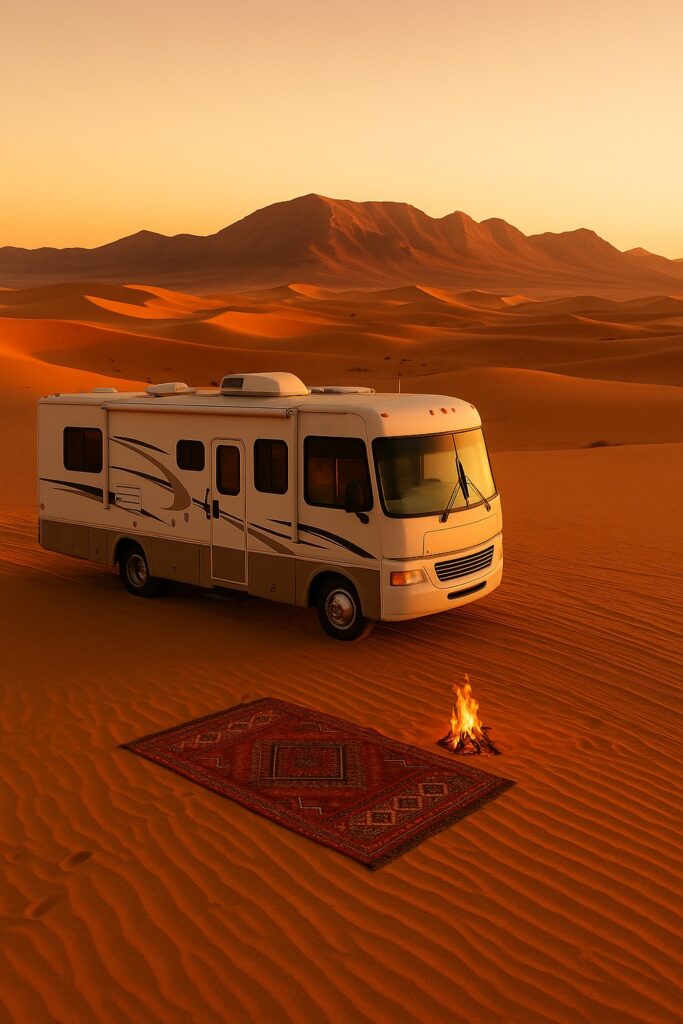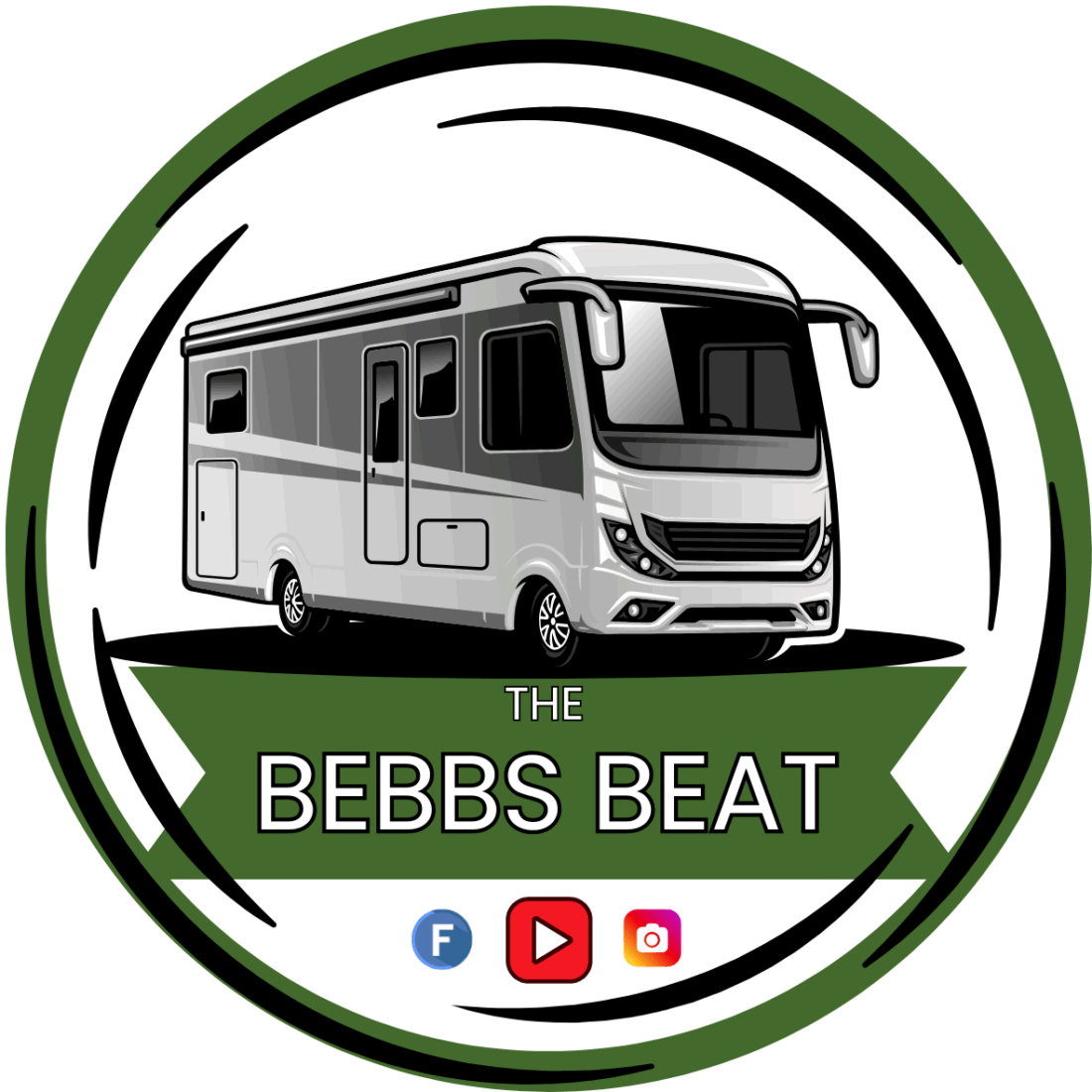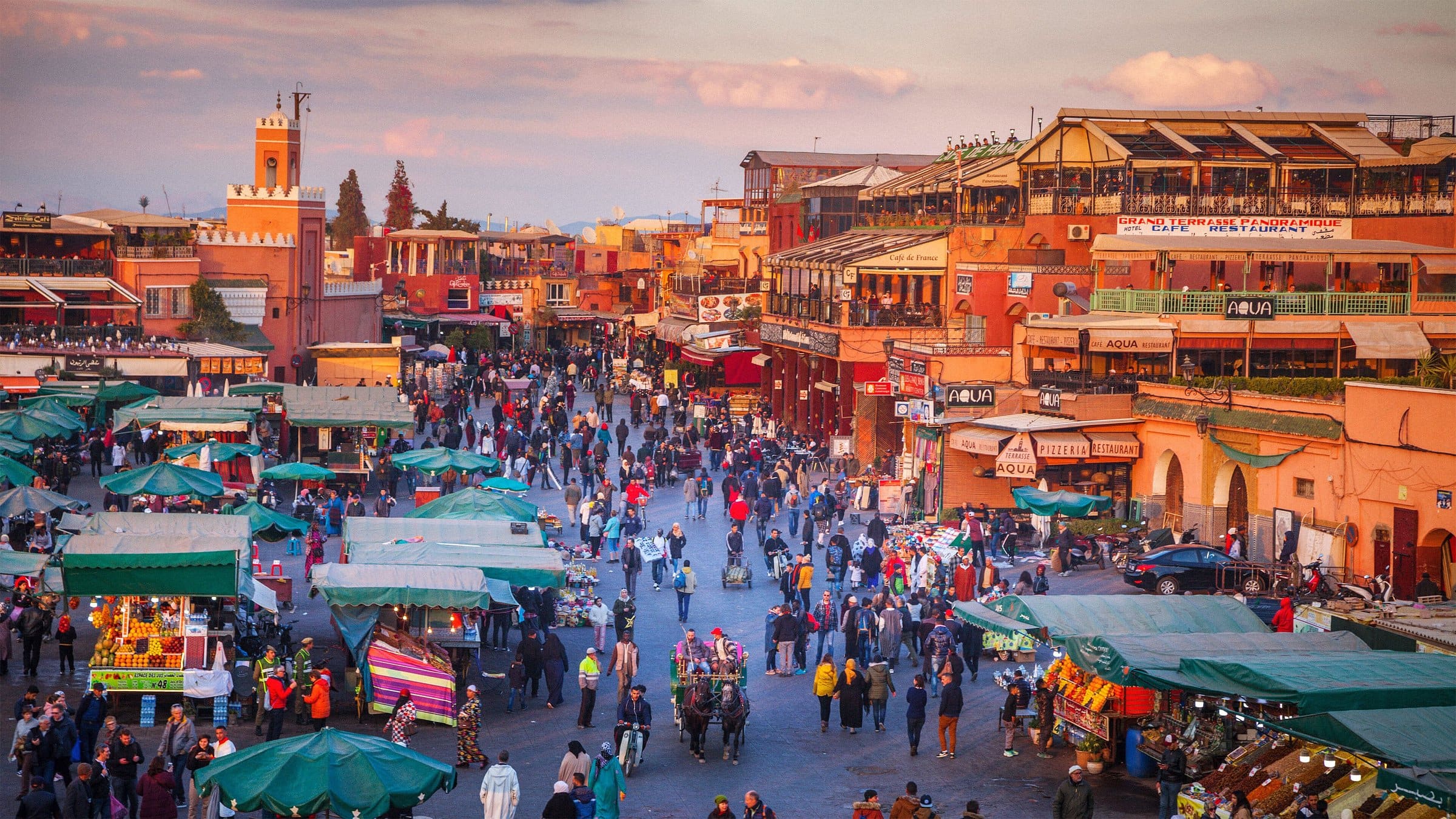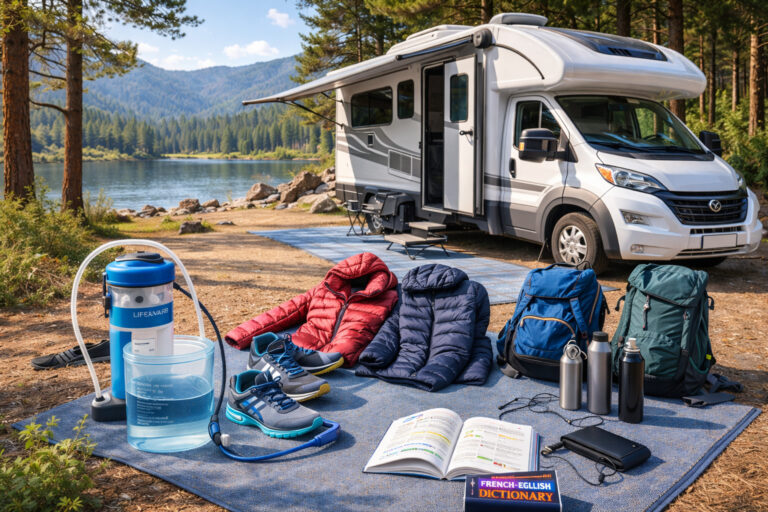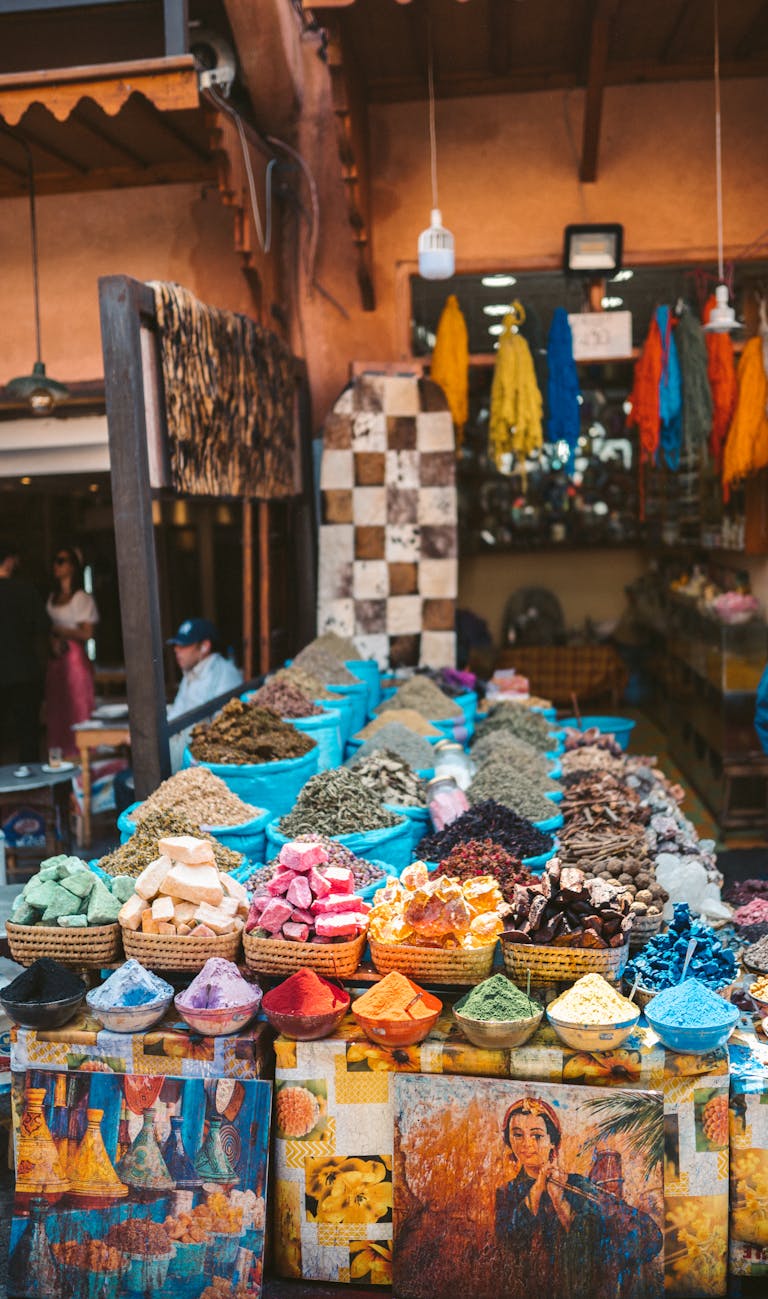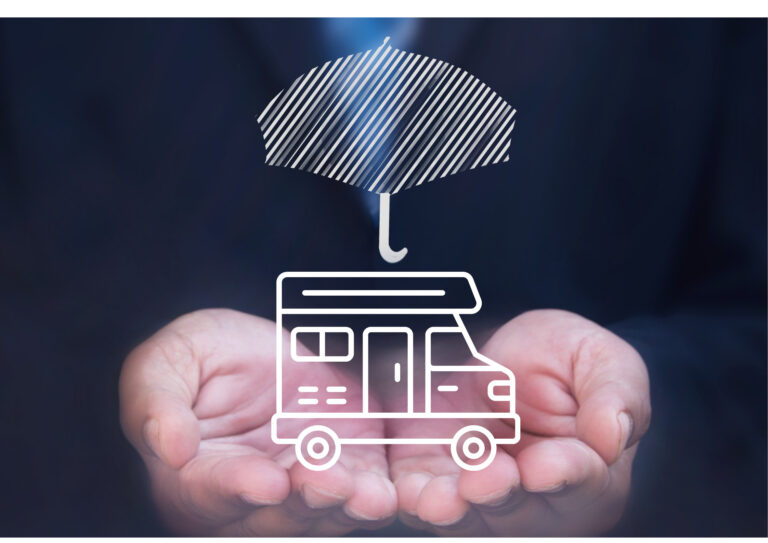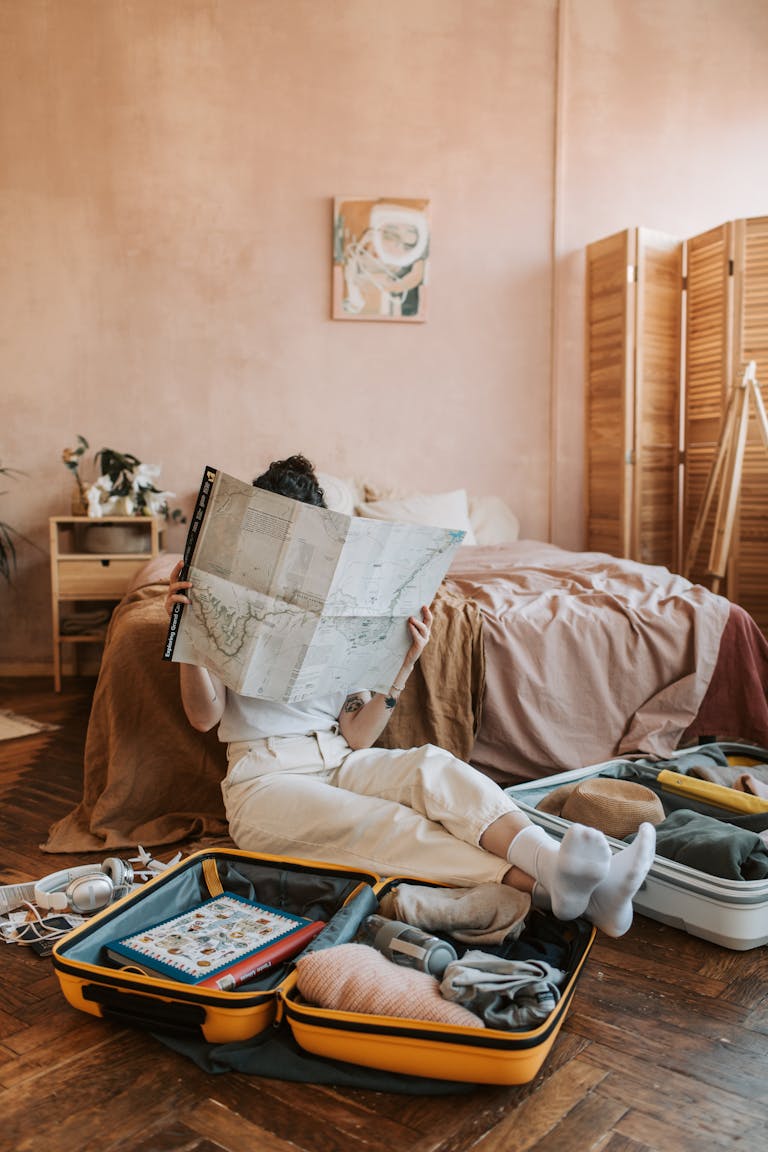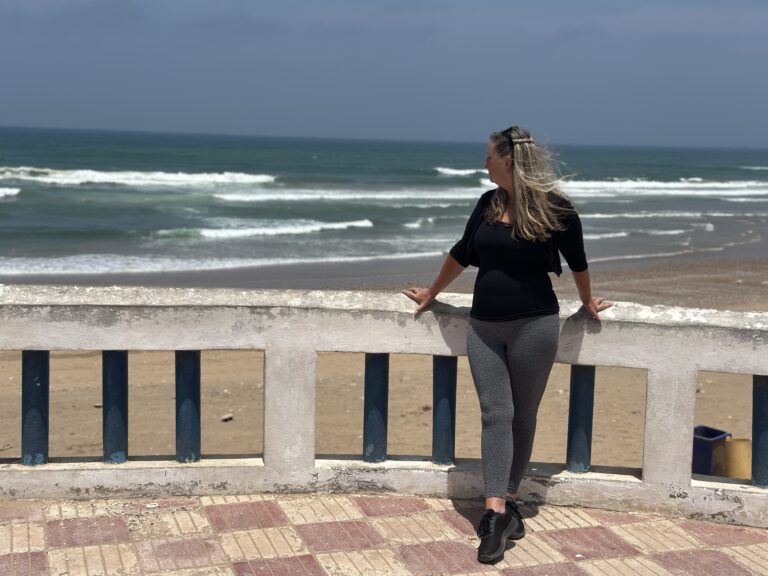Travelling In Morocco
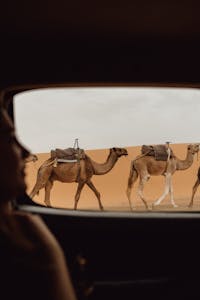
✨ Why Travelling in Morocco is the Ultimate Schengen Escape for Motorhomers/ Vanlifers
🇲🇦 Travelling in Morocco: What You Really Need to Know
Planning on travelling in Morocco in your motorhome? Here’s what to expect — from border crossings to SIM cards, seasons, safety, and cultural tips.
Travelling in Morocco by motorhome has become a popular post-Brexit escape route — and we totally get why. When your 90 days in the Schengen zone are up, travelling in Morocco offers a whole new vibe: sunshine, culture, open roads, and a chance to reset the calendar.
But let’s be honest — before we started travelling in Morocco, we heard all the warnings: “Be careful,” “It’s risky,” “You’ll get hassled.” Most of it came from people who hadn’t even been! Now that we’ve done it, I can say those fears couldn’t be further from the truth. Yes, it’s different. But it’s also incredible.
If you’re planning on travelling in Morocco in your motorhome — especially if you have a big one like our American RV, Betty — here are some honest tips and things we wish we’d known before we hit the road.
🧭 Before You Go
If you’re travelling in Morocco for the first time, having your documents organised makes everything easier. Morocco isn’t in the EU or the Schengen zone, so you’ll need to be ready with the right paperwork. Crossing over by ferry from Spain (we used Algeciras to Tangier Med) is the most popular route. It’s straightforward, but allow plenty of time at the port.
You’ll need:
- Your passport
- Your V5 (logbook)
- Insurance (We got ours once we arrived at Tangier Med port)
- Ferry paperwork
Keep in mind: Google Street View doesn’t work in Morocco, so if you’ve got a larger vehicle, it’s harder to judge routes ahead. We relied on satellite view, offline maps, and sometimes just good old-fashioned asking fellow campers for their experiences.
🛂 Entry Requirements for Morocco
If you’re travelling to Morocco from the UK (or many other countries), you can stay up to 90 days without a visa. If you want to stay longer, it’s possible to apply for a 90-day extension, but you’ll need to do that at a local Moroccan police station once you’re in the country.
Make sure your passport is valid for at least 3 months from your arrival date. That’s the minimum. But honestly, it’s a good idea to have at least 6 months left on your passport just in case you decide to extend your stay — better safe than sorry.
When you arrive, you’ll need to fill out a simple entry form. It’s nothing to stress about — just basic travel info. If you’re flying, you’ll usually fill it out at the airport. If you’re arriving by ferry, you’ll get the form onboard. Super easy and straightforward.
When’s the Best Time to Visit Morocco in Your Motorhome?
Morocco really is a land of contrasts — bordered by the Mediterranean Sea to the north, the Atlantic Ocean to the west, and criss-crossed by the dramatic Atlas and Rif Mountains through the middle. These landscapes bring all sorts of weather, making Morocco a year-round destination — but the best time to go depends on what kind of trip you’re after.
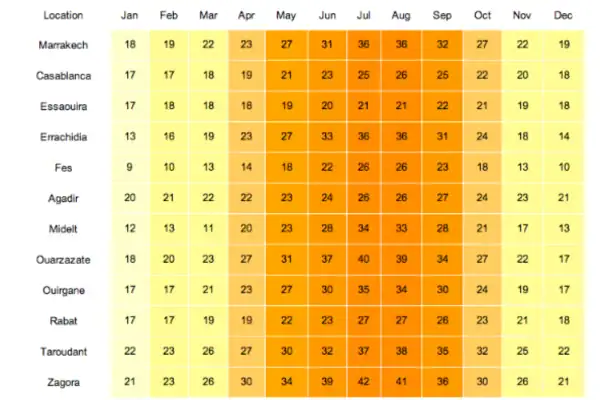
🏕 Winter (December to March)
Winter is a favourite with motorhomers — and with good reason. Travellers from all over Europe head to Morocco to escape the cold and soak up the sun. Down in the south, it can reach 25°C with barely any rain. Sunshine is the norm!
If you’re heading to the Atlantic Coast, you’ll find places like Agadir, Morocco’s main seaside resort, offering 300 days of sunshine a year, light trade winds, and mild temperatures. It’s a great spot to recharge. Just be aware — the nights can get chilly, especially along the coast or near the mountains.
This time of year is popular, so campsites do get busy. If you’re in a motorhome, do expect it may be full and it’s worth calling ahead if you are comfortable speaking french. Like us — not yet fluent in french — I’d recommend always having a backup campsite in mind, just in case your first choice is full or communication is tricky. — especially in hotspots like Taghazout or Essaouira (Mogador).
🌸 Spring (March to May) & 🍂 Autumn (September to November)
These are the best seasons to visit Morocco (in my opinion). The weather is warm and comfortable (15–30°C, depending on the region), with fewer crowds and mostly clear skies. It’s perfect for road trips, sightseeing, and just slowing down.
Spring and autumn are our favourite seasons for travelling in Morocco — the scenery is lush, the roads quieter, and the experience far more relaxing.
As you head inland, things start to feel a bit different — the weather’s less coastal and more changeable, and the landscapes get way more rugged. It’s proper wide open space territory — perfect if you’re into walking, hiking, or just exploring somewhere a bit wild. And if you love photography, spring blossoms and that golden autumn light make it all look even more magical.
And if you’re craving peace and quiet, autumn is brilliant. The crowds thin out, the beaches are quieter, and you can really enjoy the towns and countryside at your own pace.
Want tips on some of our favourite spots? Check out our Morocco Travel Guide and Motorhome Travel Tips.
🔥 Summer (July & August)
Summer in Morocco, especially inland and down south, is no joke. The heat can be intense — heatwave levels — which makes walking around or sightseeing pretty tough. The Sahara Desert is at its most striking, but it’s definitely not the best time to explore it.
If you’re set on a summer visit, stay along the coast. Places like El Jadida (Magazan), Agadir, or even further north near Tangier offer a bit of breeze from the Atlantic. Just keep in mind that locals holiday at this time too, so popular spots can get busy.
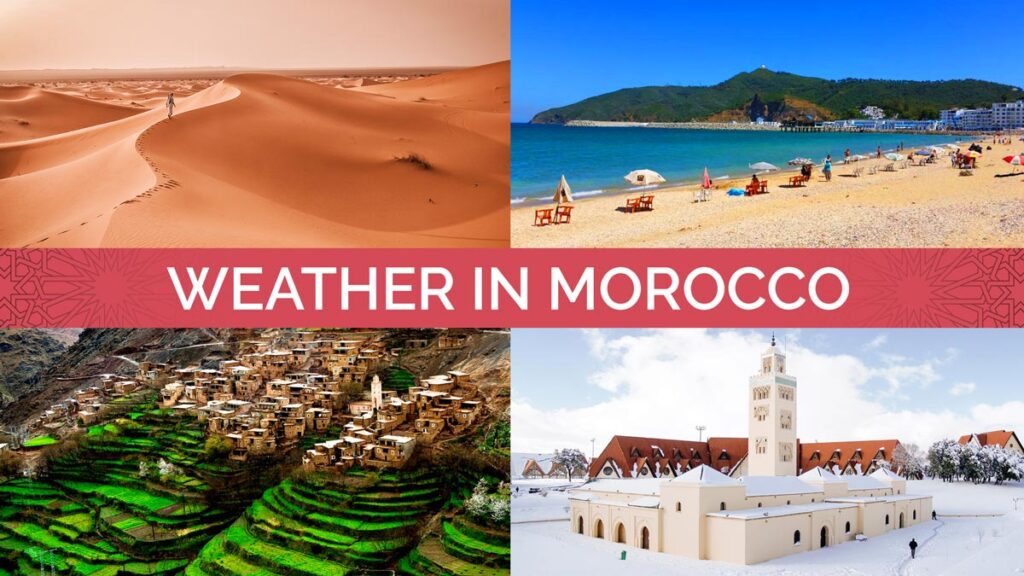
🕓 Time, Money & Staying Connected
⏰ Time zone:
Morocco is usually on the same time as the UK (GMT), which makes things simple if you’re coming from Britain. Just be aware the time can shift during Ramadan or with daylight saving changes, so it’s always worth checking before you travel.
💰 Currency:
The local currency is the Moroccan Dirham (MAD) — and it’s a closed currency, which means you won’t be able to get it before you arrive. Many places, especially local shops and markets, prefer cash. You can easily take out cash in Morocco — ATMs are everywhere. You’ll find them at banks, airports, hotels, near souks, and in most touristy spots. It’s probably the easiest way to get dirhams, especially since the currency isn’t available outside the country.
Just a heads-up: most machines have a withdrawal limit of around 2,000 dirhams (roughly £160), so if you need more, you might have to do a couple of transactions. If you can use the ATMs of Al Barid Bank (Poste Maroc). They are the only ones that do NOT have a fee for withdrawing dirham. Although if like us you use a Revolut card there will be a withdrawal charge (for some reason, not sure why).
📶 SIM cards & mobile data:
A solid data connection is a game-changer when travelling in Morocco — especially if you’re navigating new areas or checking in with campsites.Getting connected in Morocco is pretty straightforward, but here’s a tip from our own experience: avoid buying SIM cards at the port. We did, and it worked for a day or two, then gave up on us — not ideal when you’re relying on it for maps or campsite info.
If you can, go for an eSIM instead — we’ve started using one through Revolut and it’s been much smoother. No faff with top-ups or finding a shop, and you can set it up before you even arrive. Coverage was great with Maroc Telecom once we were up and running.
That said, if you prefer a physical SIM, there are mobile shops in towns where you can pick one up. And the good news is, even on the road, you’ll find small local shops where you can top up your data as you go which is super handy
Apps like park4night are really helpful when you’re on the road, so having reliable data really does make life easier.
👗 Dress Code & Respect
This is something that comes up a lot — especially for women travelling here — so here’s what we’ve found from our time on the road:
In cities and touristy spots, wearing shorts, vests, or t-shirts is totally fine. No one bats an eyelid in places like Marrakech or by the coast.
But if you’re heading into smaller villages or more traditional areas, it’s a good idea to cover your shoulders and knees, just to be respectful — especially when walking through neighbourhoods or near mosques.
Swimwear is no problem at campsites or tourist beaches, but it’s always best to pop on a cover-up when walking to and from the van or the beach.
I always carry a light scarf or shawl — it’s so easy to chuck on when you’re not quite sure what the vibe is.
Honestly, just read the room. If it feels more traditional, go a bit more covered. But don’t overthink it — locals are used to seeing travellers and we’ve never felt judged or uncomfortable.
🌍 Final Thoughts
Our biggest takeaway? Don’t overthink it. If travelling in Morocco is on your mind, just go.
We learned so much by just doing it — and we hope this guide helps you feel more confident about your own motorhome travel in Morocco. Morocco is one of those places that really gets under your skin — in the best possible way. It’s colourful, chaotic, calm, kind, and completely unlike anywhere else we’ve been. If you’re thinking about taking your motorhome or campervan over, our advice is simple: just go. Be prepared, stay open-minded, and let the country surprise you — because it will.
If you’ve got any questions about the trip, feel free to get in touch — and don’t forget to check out our Travel Resources for more guides, tips, and checklists to help you hit the road with confidence.
Happy travels — and maybe we’ll see you on the road!
